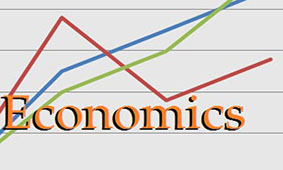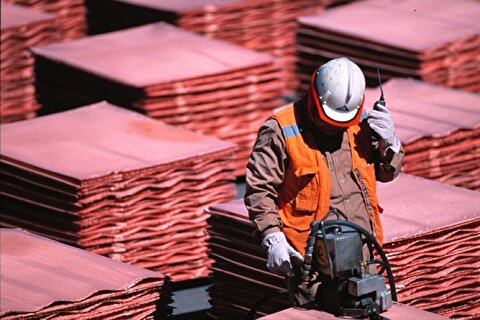
Iran, Iraq Sign Economic, Healthcare, Oil Pacts


The documents were signed by senior officials of the two countries in the presence of Iranian President Hassan Rouhani and Iraqi Prime Minister Adel Abdul-Mahdi in Baghdad on Monday.
According to the documents, Tehran and Baghdad will improve cooperation in the fields of trade, healthcare and oil industry.
The two sides also agreed on the construction of a railroad link between the Iranian city of Shalamcheh and the Iraqi city of Basra as well as visa facilitation for investors and businessmen. According to the visa agreement, starting in early April 2019, the two countries will issue visas to each other's nationals free of charge.
Tehran and Baghdad signed another MoU to boost cooperation between Iran's Ministry of Industry, Mine and Trade and Iraq’s Ministry of Trade.
The two countries also agreed to cooperate in all fields related to healthcare while another agreement pertained to cooperation between Iran's Ministry of Petroleum and its Iraqi counterpart.
Earlier, on Monday morning at Mehrabad International Airport, President Rouhani said before leaving Tehran for Baghdad that his visit was intended to further deepen bilateral relations between the two neighboring countries.
Rouhani hoped that during his visit to Baghdad, the two countries’ officials would hold fruitful meetings in different fields including trade, health, transit, tourism etc.
“Iran can provide many of its needs from Iraq and we have important plans during this visit,” Rouhani highlighted, adding, “The goal of this visit is deepening bilateral relations.”
“Relations between Iran and Iraq are special,” the Iranian top executive said, adding, “In the recent years, the people of Iran have passed a test with pride, and that is wherever the people of the region faced a problem and asked for the help of the Iranian nation and government, we rushed to help them.”
“There are many common grounds for cooperation between the two countries. We have been alongside the Iraqi people in their hard times, and today, which is the day of peace and security in the country, we are still by the side of the Iraqi nation.”
He said, “Iran considers relations with its neighbors as the most important issue in its foreign relations, and our neighbors want to have close, good relations with Iran.”
“Today, we have good relations and cooperation with Iraq in almost all fields, including transit, tourism, pilgrimage, investment, political, regional and international fields.”
“Today, our economic cooperation amounts to $12 billion a year, and we can easily increase this to $20 billion in the coming years,” said Rouhani.
Touching upon the two sides’ interest in building railroads, he noted, “the issue of transit is of special importance for us.”
Referring to sediment removal of Arvand Rud President Rouhani said, “Based on the 1975 treaty, this sediment removal is beneficial for both countries, and the cities of Basra, Khorramshahr, and Abadan.”
On industrial parks, he said, “we have border issues in terms of security and also the environment and dust are important for us, to settle which, joint measures should be taken by both countries.”
“In Baghdad, an economic forum will be held, and we will also have meetings with the nomads, elites, and politicians of Iraq, and we will also make pilgrimage to the holy shrines in Karbala and Najaf,” he said.
Rouhani continued, “We hope that this visit will be beneficial for both nations and countries, bringing about the development of relations between the two countries.”
Elsewhere, pointing to the sneaky visit of US President Donald Trump to Iraq, Rouhani said that ties between Iran and Iraq cannot be compared to Iraq’s relations with an occupying country like the United States.
“The United States is being hated the region. One cannot forget the bombs that Americans dropped over Iraq, Syria and other countries in the region.”
Two days earlier, Iran’s Foreign Minister Mohammad Javad Zarif said third party interference may not leave a negative impact on the relations between Tehran and Baghdad.
“Iran and Iraq are two neighboring states and no other country is entitled to meddle with the historical ties between these two neighbors,” Zarif told reporters in Baghdad on Saturday night, adding that those third-party states who seek to undermine the Tehran-Baghdad ties through meddling “are wasting time and may not affect the Iran-Iraq relations through such interferences”.
Zarif who was speaking to reporters upon arrival in the Iraqi capital, said his trip was aimed at preparing the ground for a landmark visit to Baghdad by President Rouhani.
The minister said the two states’ officials were due to discuss expansion of cooperation in various economic, transit, energy and industrial grounds during President Rouhani’s visit to Iraq, adding that the trip would end up in the conclusion of serious agreements between the two countries.


Newmont nets $100M payment related Akyem mine sale

First Quantum scores $1B streaming deal with Royal Gold

Caterpillar sees US tariff hit of up to $1.5 billion this year

Gold price rebounds nearly 2% on US payrolls data

Copper price collapses by 20% as US excludes refined metal from tariffs

St Augustine PFS confirms ‘world-class’ potential of Kingking project with $4.2B value

B2Gold gets Mali nod to start underground mining at Fekola

Goldman told clients to go long copper a day before price plunge

Copper price posts second weekly drop after Trump’s tariff surprise

Codelco seeks restart at Chilean copper mine after collapse

US slaps tariffs on 1-kg, 100-oz gold bars: Financial Times

BHP, Vale offer $1.4 billion settlement in UK lawsuit over Brazil dam disaster, FT reports

NextSource soars on Mitsubishi Chemical offtake deal

Copper price slips as unwinding of tariff trade boosts LME stockpiles

SAIL Bhilai Steel relies on Danieli proprietary technology to expand plate mill portfolio to higher steel grades

Alba Discloses its Financial Results for the Second Quarter and H1 of 2025

Australia weighs price floor for critical minerals, boosting rare earth miners

Australia pledges $87M to rescue Trafigura’s Nyrstar smelters in critical minerals push

Fresnillo lifts gold forecast on strong first-half surge

US slaps tariffs on 1-kg, 100-oz gold bars: Financial Times

BHP, Vale offer $1.4 billion settlement in UK lawsuit over Brazil dam disaster, FT reports

NextSource soars on Mitsubishi Chemical offtake deal

Copper price slips as unwinding of tariff trade boosts LME stockpiles

SAIL Bhilai Steel relies on Danieli proprietary technology to expand plate mill portfolio to higher steel grades

Alba Discloses its Financial Results for the Second Quarter and H1 of 2025

Australia weighs price floor for critical minerals, boosting rare earth miners

Australia pledges $87M to rescue Trafigura’s Nyrstar smelters in critical minerals push

Fresnillo lifts gold forecast on strong first-half surge














